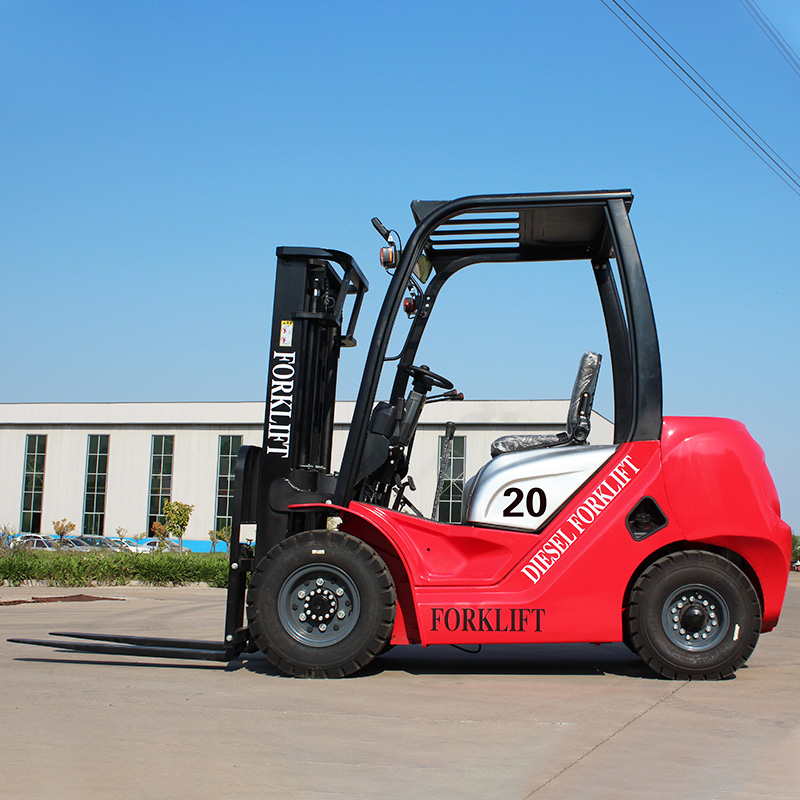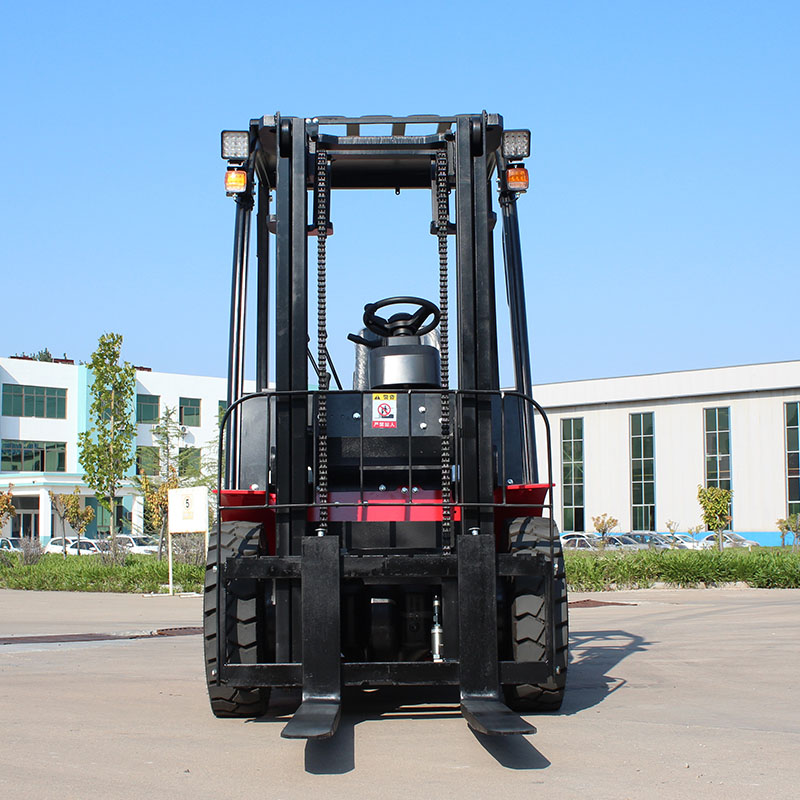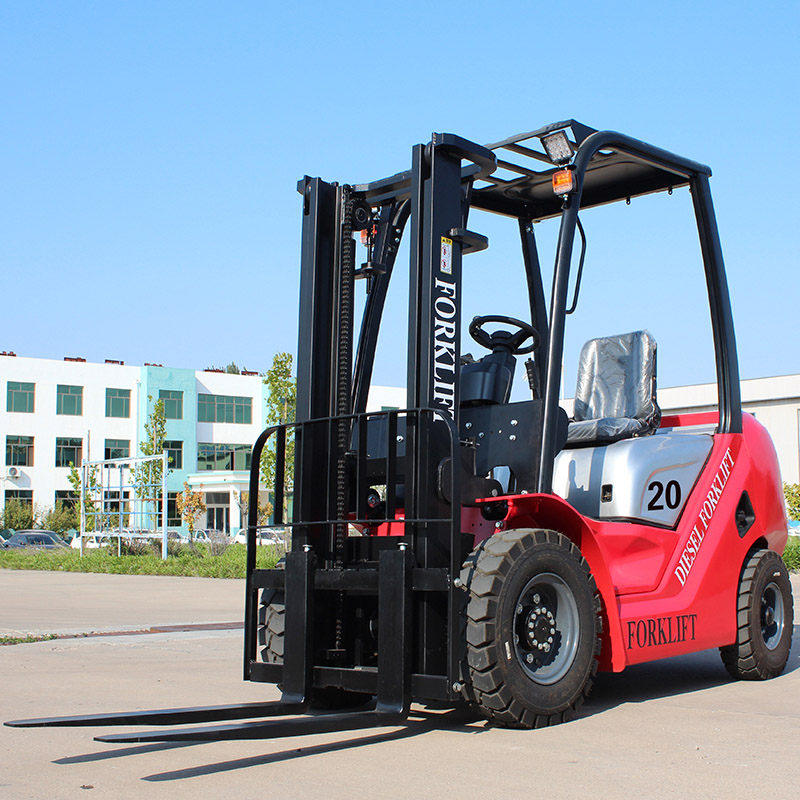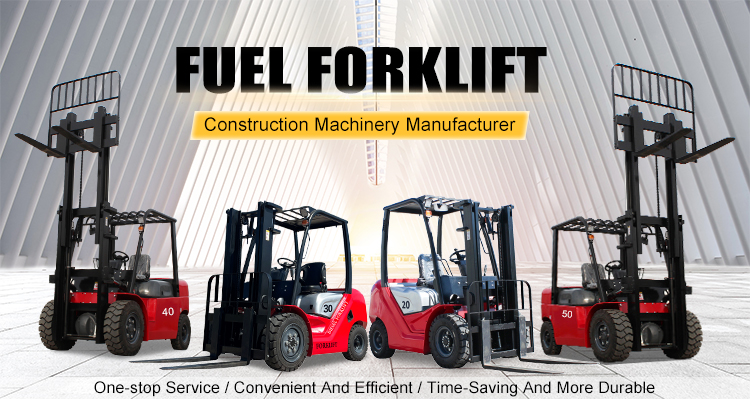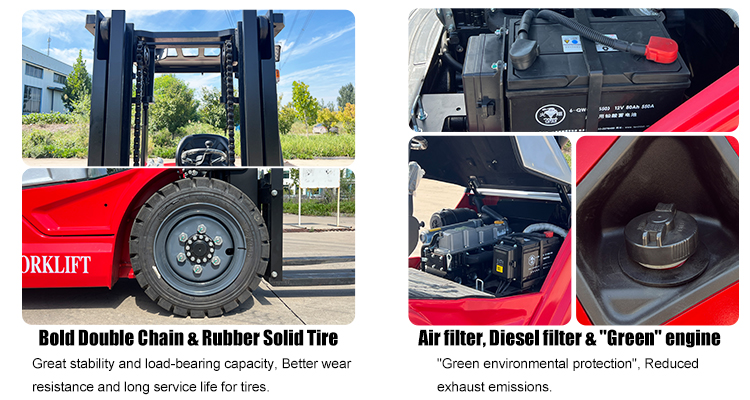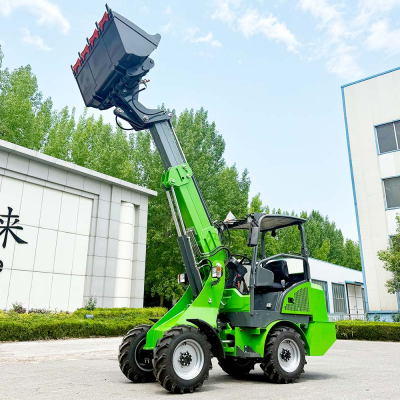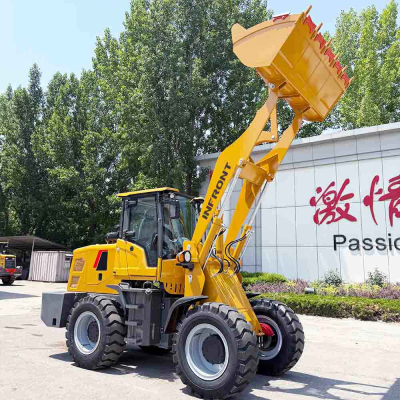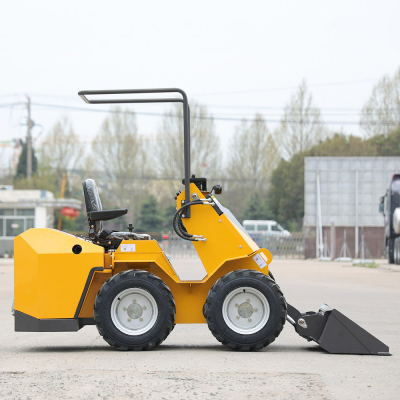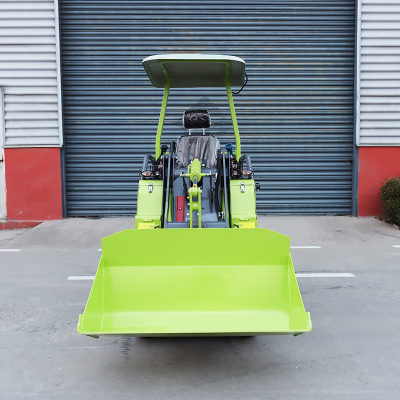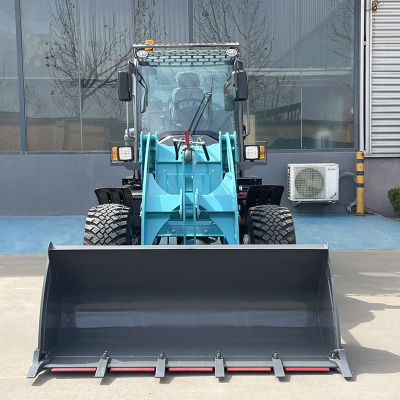Diesel forklift truck
Fuel-powered forklifts (typically including diesel, gasoline, and LPG forklifts) offer irreplaceable advantages in specific scenarios due to their power characteristics and environmental adaptability. Their core advantages can be summarized in five key dimensions: power performance, operating efficiency, environmental adaptability, maintenance costs, and load capacity. The details are as follows:
1. Powerful power and stable endurance, suitable for high-intensity operations
2. High load capacity, suitable for heavy-duty industrial applications
3. Strong environmental adaptability, unrestricted by charging conditions
4. Manageable long-term maintenance costs, easy repairs, and widely available spare parts
5. No site restrictions, suitable for outdoor/open spaces
A fuel forklift, also known as an internal combustion forklift, is a type of industrial handling equipment that uses fuel (diesel, gasoline, or liquefied petroleum gas (LPG)) as its energy source. Its internal combustion engine converts the fuel's chemical energy into mechanical energy, enabling operations such as cargo handling, stacking, and loading and unloading. It is a common heavy-duty material handling tool in logistics warehousing, manufacturing, construction, and port terminals. Its core feature is its reliance on an internal combustion engine, which distinguishes it from battery-powered electric forklifts.
Product Details
1. Powerful Power Output: Fuel-powered forklifts are typically equipped with diesel, gasoline, or LPG engines, providing strong torque and power. For example, the engines in the Heli G Series 8.5-10 ton forklifts feature electronic control technology developed jointly with the manufacturer, enhancing overall power performance and meeting the demands of heavy-duty operations.
2. Excellent Fuel Adaptability: Some fuel-powered forklifts, such as Clark's LPG/diesel dual-fuel models, offer multi-fuel compatibility, allowing for flexible fuel switching based on energy prices and availability, reducing the risk of fluctuating operating costs.
3. Superior Cold-Start Performance: In low-temperature environments, fuel-powered forklifts exhibit significantly better cold-start performance than electric forklifts, enabling them to quickly get to work and adapt to a variety of harsh working environments.
Detailed parameters

